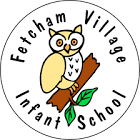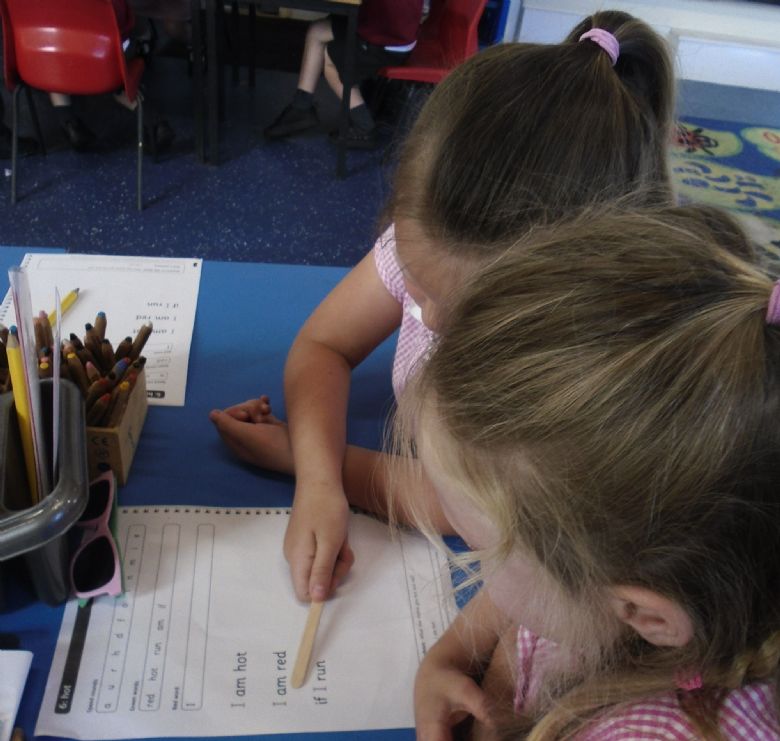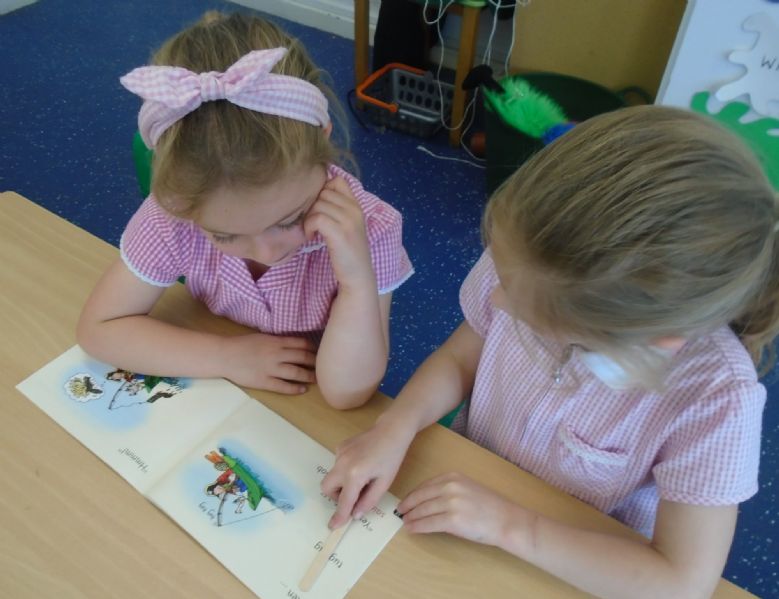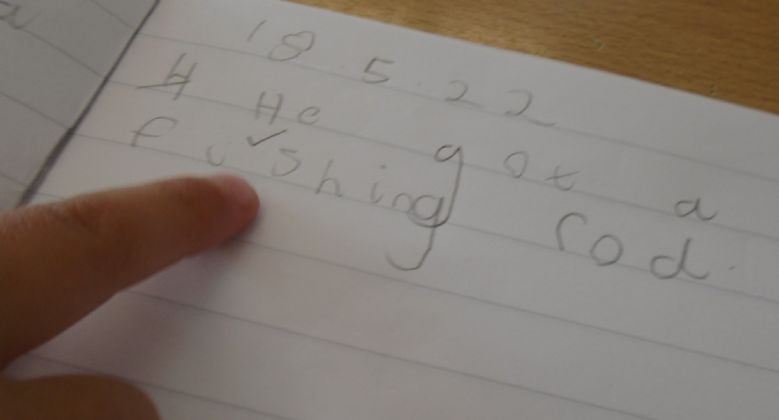English
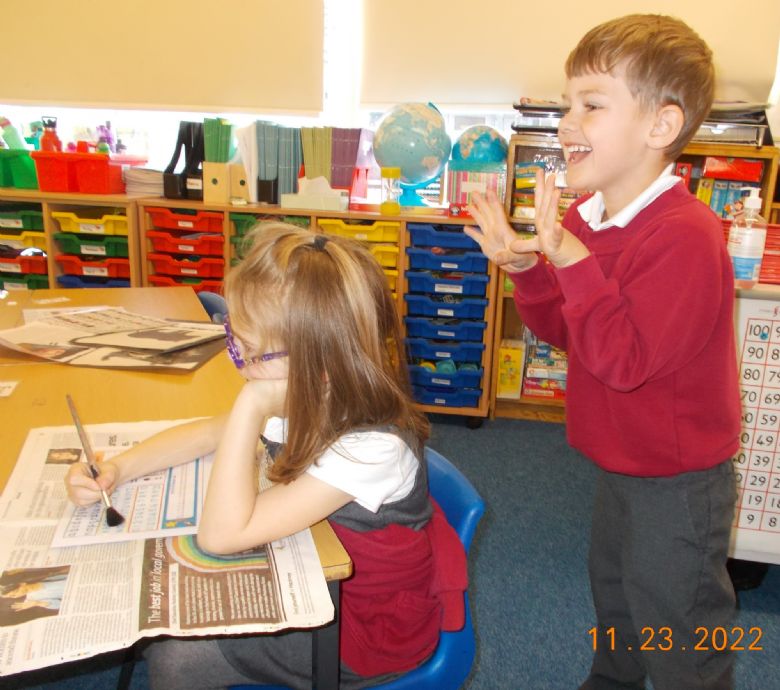
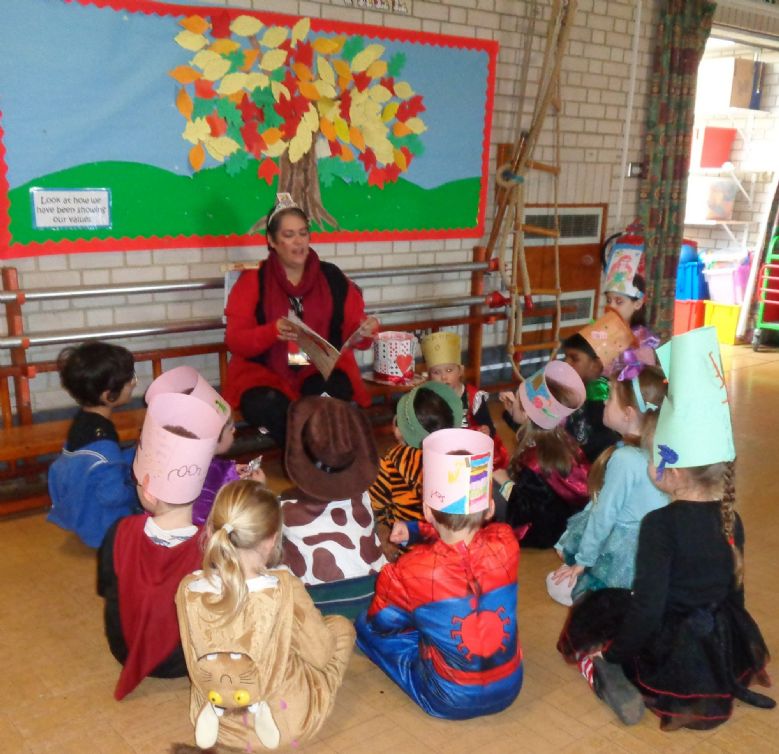
Click here for My Book Review Form and use it to tell us about your favourite books!
In English, we intend for all children to:
Reading:
-
Read for pleasure and develop a love of books which will last their whole lives
-
Read independently, with confidence, fluency and accuracy
-
Use a range of independent strategies to self-correct, evaluate and reflect
-
Show a depth of understanding of what they have read
-
Enjoy a wide range of texts and have enthusiasm for reading
Writing:
-
Enjoy writing - Have enthusiasm for writing in and out of school
-
Have the freedom, ability and desire to express and communicate their ideas, thoughts and feelings confidently
-
Write in a range of contexts for all kinds of purposes and audiences
-
Write independently
-
Can reflect on, edit and evaluate their writing
-
Generate quality writing every time they write
Speaking and Listening:
-
Develop children’s confidence and ability to express themselves clearly
-
Enable children to effectively communicate their thoughts, feelings and ideas
-
Develop an awareness of use and the correct forms of spoken English
-
Listen with attention, concentration and understanding
-
Enable children to value the contributions and feelings of others
Handwriting:
-
Enjoy writing
-
Write with fluidity and legibility in all areas of writing
-
Present all their learning neatly and with care
-
Always write to the best of their ability whenever they write
-
Learn correct letter formation
-
Correctly form all their lowercase and capital letters plus digits 0 to 9 by the end of Year 1.
-
Write in a legible, flowing, joined script by year 2
Vocabulary, Spelling, Punctuation and Grammar:
Throughout the teaching of English, we understand the importance of teaching children the vocabulary they need to discuss their reading, writing and spoken language. We understand that it is important for children to learn the correct grammatical terms in English and we integrate these terms within our teaching.
By the end of Key Stage 1 we aim for all children to be able to use Standard English to confidently speak and write using the correct grammatical terms and vocabulary, as outlined by the National Curriculum 2014.
We aim to make learning in English lessons memorable and engaging for children and often provide a ‘hook’ for learning. Planning is based on ‘text-based’ English units, where the audience and purpose of the children’s writing is always a driver and at the forefront. The lessons are based around a high quality text or video, and the skills and knowledge they acquire in the lesson sequence all contribute to the creation of their final writing piece. Drama, grammar, punctuation and shorter writing tasks are included in this sequence. Children are adventurous with vocabulary choices, using vocabulary displayed in the classrooms. Vocabulary mats, thesauruses and dictionaries are easily accessible for children to use.
The writing process in English lessons gives children an engaging context for writing, to build up appropriate vocabulary before children write. Activities used in this process are role play, hot seating, sequencing and drawing story maps. Through this process, we teach the appropriate skills needed for each writing purpose. Children learn about a range of writing genres and fiction, non-fiction and poetry. Through daily phonics sessions using RWI, children learn how to segment sounds in words to write. They start by learning how to write simple words and then apply this to more complex words and sentences. Children also learn how to apply spelling rules to their writing and choose the appropriate sound to use in a word.
In Year 2, spelling lessons are taught with a focus on a different spelling pattern each week. Children take home a list of spellings to learn and the following week they write dictated sentences which includes some of their spelling words.
In Reception, handwriting is taught following the RWI rhymes to start, to ensure the correct formation of the letters. From Reception up to Year 2, the letters are taught in ‘families’ of similar formation. They learn the correct strokes needed for individual letter formation and build up to joining letters within a word.
We are passionate about reading at Fetcham Village Infant School and teachers value daily story times to read high quality texts to their classes. Each year group has a list of high quality texts which have been purchased for each class. When reading these texts, teachers use open questions to ensure understanding and discuss the meaning of new vocabulary. All classes have engaging and inviting books corners to encourage reading for pleasure. High quality books are available in all classrooms for children to read at different points throughout the day and to take home to read for pleasure. Children also visit the library to browse a range of fiction and non-fiction.
Phonics is taught using the systematic and synthetic phonics scheme ‘Read Write Inc.’ (RWI) which provides a consistent and progressive approach to teaching early reading. RWI exceeds all requirements of the EYFS and National Curriculum requirements for reading. The scheme has been carefully planned to ensure phonics lessons are of high quality, engaging and repetitive. The progression of phonics from Reception to Year 2 ensures that all children learn to read, gain a love of reading and extend their vocabulary. RWI is taught daily and those children who are falling behind the pace of the programme receive daily intervention to help them keep up.
In phonics, children are assessed each half-term allowing gaps to be identified and filled quickly. The assessment takes place in week 5 of each half-term so that interventions can happen immediately. When children are fluent readers, they are assessed against the National Curriculum in both word reading and comprehension. In depth whole school and year group writing moderation takes place each term to ensure consistency across the school and provide challenge for the most abled children. At the end of Reception and Year 2, attainment is assessed against the statutory frameworks. Phonics in Year 1 is assessed through the statutory Phonics Screening Check.
Through our high-quality teaching of English, we aspire for all children to reach age related expectations or above by the end of each year group. Children will make good and excelled progress from their own personal starting points.
For more information on English, or for activities to try at home please click on the following links:
Early Years Foundation Stage (EYFS) - Reception
Communication (Speaking and listening)
Read Write Inc. (Phonics and reading)
(Year 1)
(Year 2)
